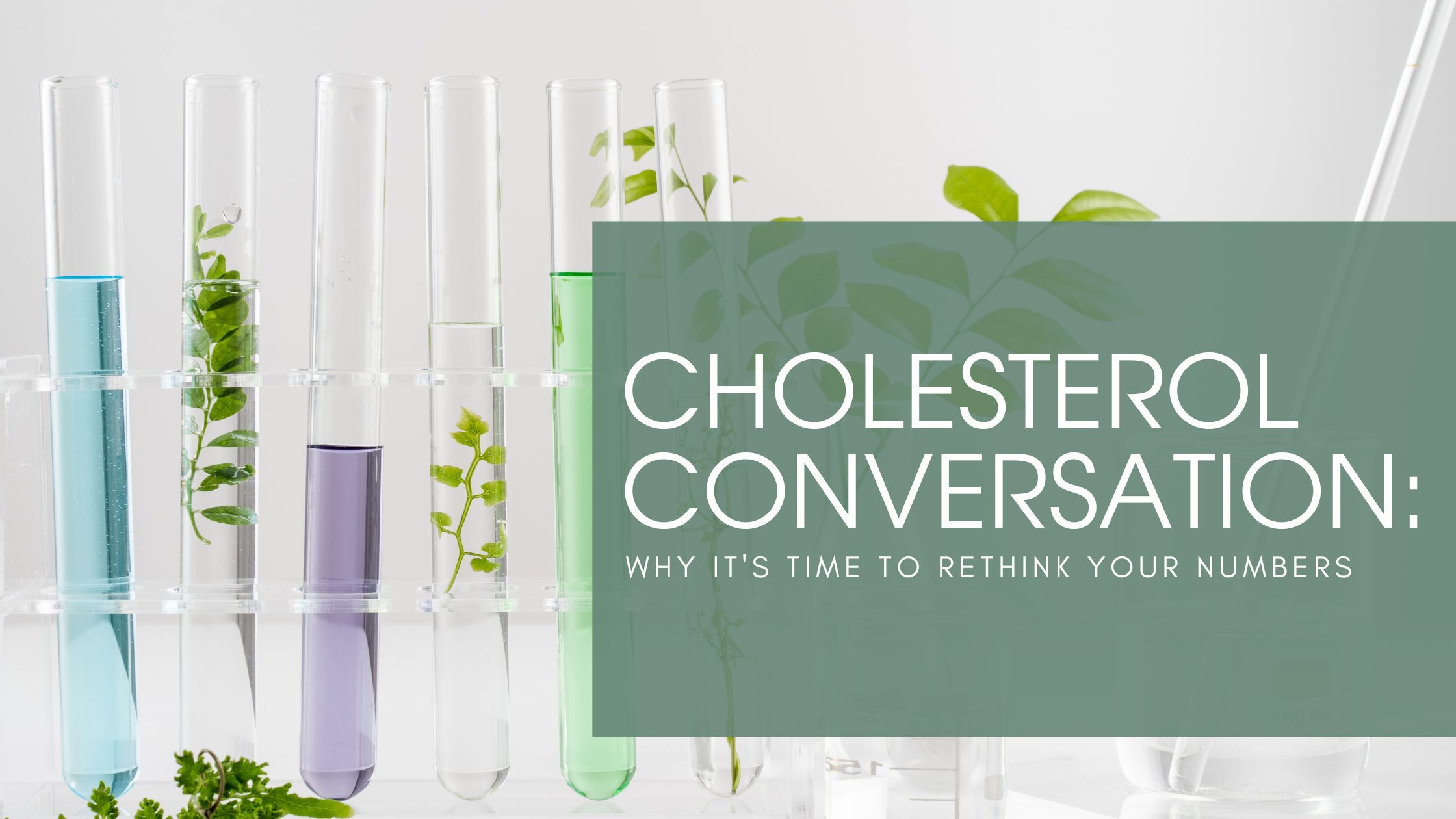
The Cholesterol Conversation: Why It's Time to Rethink Your Numbers
Aug 28, 2025Every September, National Cholesterol Education Month reminds us that heart disease is still the leading cause of death in the U.S. but also one of the most preventable.
And it often starts with something silent: Elevated Cholesterol.
Most people don’t feel their cholesterol rising.
There’s no warning light.
No pain.
But over time, cholesterol imbalance can quietly damage blood vessels, increase plaque buildup, and lead to life-threatening events like a heart attack or stroke.
The good news?
High cholesterol is treatable and in many cases, reversible with the right plan.
Let’s Start With the Basics: What Is Cholesterol?
Cholesterol is a waxy, fat-like substance found in your blood. Your body needs it to build cells, make vitamin D, and produce hormones. But there’s a balance.
There are two key types:
-
LDL (low-density lipoprotein): Often called “bad” cholesterol because it contributes to plaque buildup in arteries.
-
HDL (high-density lipoprotein): Known as “good” cholesterol because it helps remove excess LDL from your bloodstream.
When LDL is too high or HDL is too low it puts you at increased risk for cardiovascular disease.
But here’s where it gets more nuanced...
Why Personalized Care Matters More Than Ever
Two people can have the same LDL number but very different health risks. That’s why a personalized approach goes beyond just total cholesterol and basic labs.
At our practice, we also consider:
-
Family history and genetics
-
Inflammatory markers (like hs-CRP)
-
Lipoprotein particle size and number
-
Triglycerides and insulin resistance
-
Nutrition, movement, stress, and sleep patterns
We don’t just treat the number. We treat the person behind it.
How to Bring Down Your Cholesterol Naturally and Sustainably
While medications like statins can be effective when needed, many patients are able to reduce their cholesterol through lifestyle strategies tailored to their needs.
Here’s where to start:
1. Choose the Right Fats
Not all fats are harmful. In fact, certain fats can help improve cholesterol:
-
Eat more: Avocados, olive oil, fatty fish (like salmon), nuts, seeds
-
Eat less: Trans fats (in processed foods) and excessive saturated fat (found in fatty cuts of meat, butter, and full-fat dairy)
2. Add More Soluble Fiber
Soluble fiber binds to cholesterol in the digestive system, helping remove it from your body. Great sources include:
-
Oats
-
Beans and lentils
-
Apples and pears
-
Ground flaxseeds and chia
3. Move Your Body Regularly
Physical activity can raise HDL (good cholesterol) and lower LDL and triglycerides.
-
Aim for at least 150 minutes of moderate activity per week
-
Walking, swimming, biking, and strength training all count
4. Watch for Added Sugars and Refined Carbs
Excess sugar and highly processed carbs (like white bread, pastries, and soda) can raise triglycerides and worsen insulin resistance, which can indirectly raise LDL.
5. Limit Alcohol and Quit Smoking
Both can negatively affect cholesterol and overall cardiovascular health. Even moderate alcohol intake can impact triglycerides.
6. Manage Stress and Prioritize Sleep
Chronic stress and sleep deprivation can increase cortisol levels, which may worsen lipid profiles over time. Simple practices like breath work, meditation, or quality sleep hygiene can make a measurable impact.
How to Maintain Healthy Cholesterol Levels for Life
Bringing your cholesterol down is one thing keeping it in a healthy range long-term is where sustained care comes in.
What works:
-
Consistent follow-ups: We monitor your progress, adjust your plan, and celebrate wins together.
-
Ongoing education: Understanding why things work helps you stay motivated.
-
Individualized support: Whether it’s medication, supplements, or nutrition coaching, we guide you based on what your body responds to best.
Bottom Line: It’s Not Just About Numbers It’s About You
High cholesterol isn’t a sentence it’s a signal.
A chance to check in with your body and make meaningful, lasting changes. With personalized primary care, you don’t just get a handout or a prescription you get a team that helps you understand the why behind the data, and a plan designed for your life.
Let’s use it as a reminder that your heart deserves more than quick fixes it deserves thoughtful care, tailored to you.
Schedule a visit, check your labs, and let’s create a strategy that works now and for years to come.
